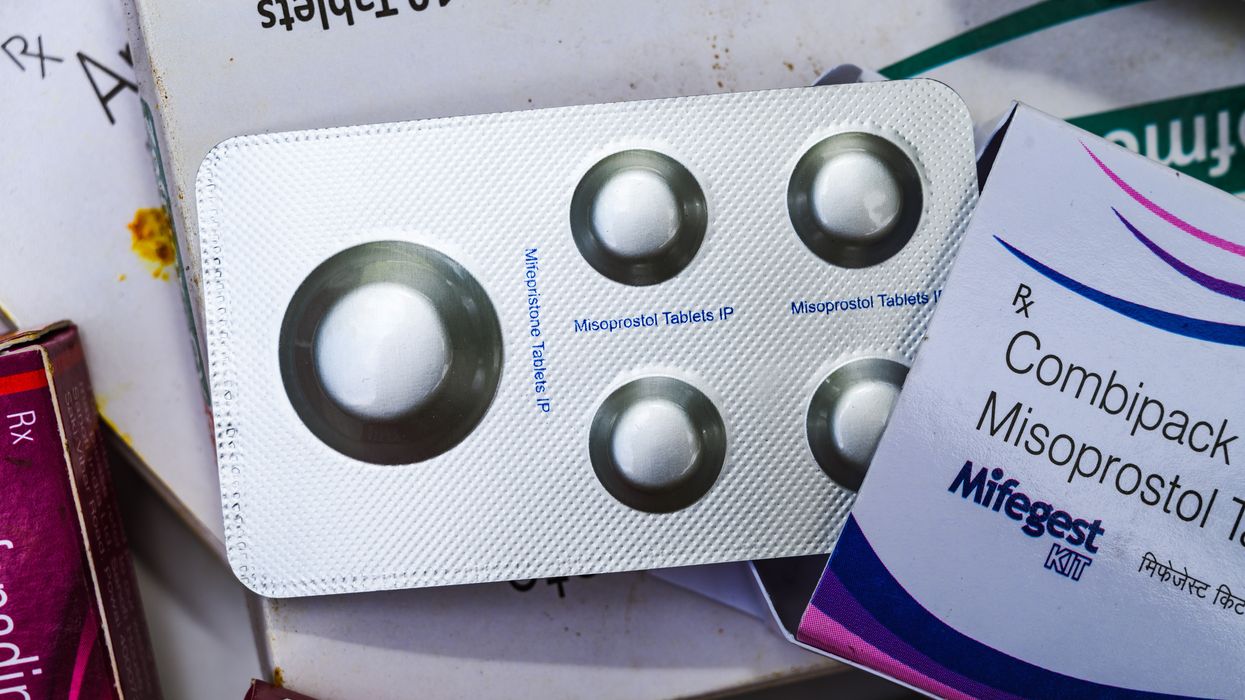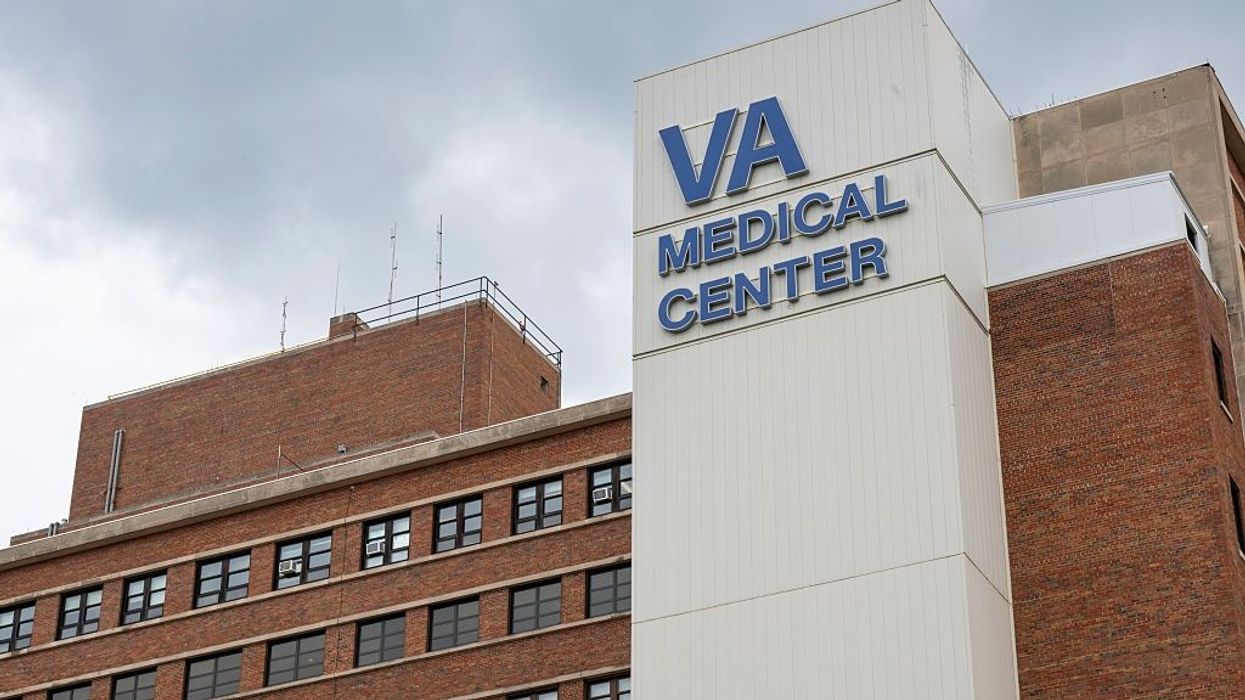Planned Parenthood and its leader have frequently criticized actions by President Donald Trump, including his signature on Republicans' recently passed budget reconciliation package that targets the group's clinics—which provide a range of healthcare services—by cutting them off from Medicaid funds if they continue to offer abortions.
"Those who fight for all our freedom must have the most basic freedom to control their own bodies and futures—and this rule robs them of it. Taking away access to healthcare shows us that the Trump administration will always put politics and retribution over people's lives," McGill Johnson said of the new proposal for veterans' care. "Planned Parenthood will never stop fighting to ensure everyone has access to the full spectrum of sexual and reproductive healthcare—no matter what."
In the wake of the U.S. Supreme Court's 2022 reversal of Roe v. Wade, the Biden administration allowed the Department of Veterans Affairs to provide abortion counseling and care for service members and beneficiaries in cases of rape, incest, or if the pregnancy threatened the health of the patient. On Friday, the VA proposed a rule that would "reinstate the full exclusion on abortions and abortion counseling from the medical benefits package," and the Civilian Health and Medical Program.
The document says the VA would continue treating ectopic pregnancies and miscarriages, and would allow abortion care "when a physician certifies that the life of the mother would be endangered if the fetus were carried to term."
The proposal quickly drew rebuke from a range of critics, including U.S. lawmakers. Blasting the proposed rule as "disgusting and dangerous," Senate Veterans' Affairs Committee Ranking Member Richard Blumenthal (D-Conn.) said on social media Friday that the government "should not be able to impose a pregnancy on anyone—least of all survivors of rape, abuse, or those whose health is at risk."
Sen. Patty Murray (D-Wash.), who had advocated for the Biden administration's policy, declared Saturday that "Republicans don't care if your health is in danger, if you're a veteran, or if you've been raped—they want abortion outlawed everywhere, for everyone."
As the 30-day public comment period for the proposed rule began Monday, U.S. House Veterans' Affairs Committee Ranking Member Mark Takano (D-Calif.) warned that "stripping away access to essential reproductive healthcare at VA, the largest integrated healthcare network in the United States, puts veterans' lives at risk and violates the promise we made to them. Veterans have earned the right to healthcare. Full stop. This ban on reproductive healthcare will harm veterans and is dangerous."
The proposal makes clear that VA Secretary Doug Collins "is substituting his judgment for that of the hundreds of thousands of women veterans who have earned the freedom to make personal medical decisions in consultation with their providers," Takano said in a statement. "It also gags medical providers and does not allow them to provide complete and honest care to veterans who get their care from VA. Rolling back this rule is a direct attack on veterans' rights. It will jeopardize the lives of pregnant veterans across our country, especially those residing in states with total abortion bans and other reproductive healthcare restrictions, which have already led to preventable deaths."
Reproductive rights advocates have similarly weighed in over the past few days and highlighted the anti-choice state laws enacted since the Dobbs v. Jackson Women's Health Organization decision reversed Roe.
Katie O'Connor, senior director of federal abortion policy at the National Women's Law Center, said that "at a time when extremist lawmakers are passing cruel abortion bans and restrictions, this move only deepens the crisis those laws have created—stripping veterans of their reproductive freedom and creating even more confusion about where they can turn for care."
"Veterans already face unique challenges to their health and well-being, including experiencing PTSD, recovering from military sexual trauma, and facing an increased risk of suicide," she noted, referring to post-traumatic stress disorder. "Banning access to the full range of reproductive services, including abortion, further jeopardizes their health and safety. No one should have to travel hundreds of miles, endure financial hardship, or risk their health just to get the medical care they need. Our veterans deserve better."
Center for Reproductive Rights president and CEO Nancy Northup declared that "this administration is sending a clear message to veterans—that their health and dignity aren't worth defending. To devalue veterans in this way and take away life-changing healthcare would be unconscionable. This shows you just how extreme this administration's anti-abortion stance is—they would rather a veteran suffer severely than receive an abortion."
Dr. Raegan McDonald-Mosley, a practicing OB-GYN and CEO of Power to Decide, also warned that the new "needlessly cruel policy change," if it goes through as expected, will harm veterans and "once again betrays our nation's commitment to them."
"Since the Supreme Court overturned Roe v. Wade, 12 states have enacted total abortion bans, one additional state has no abortion clinics, and seven states have gestational restrictions often in effect so early that people don't even know they are pregnant," she explained. "All of this exacerbates an ongoing public health crisis. For some veterans, VA was the only place they were able to obtain abortion care in these states."
"Restrictions on abortion coverage—the effects of which fall hardest on people who already face unequal access to healthcare, including Black women, people of color, and people with low incomes—hinder a person's reproductive well-bring and deepen inequities," the doctor added. "Power to Decide condemns this policy and urges Congress to pass legislation to ensure all veterans have access to the abortion care they need when and where they need it."


